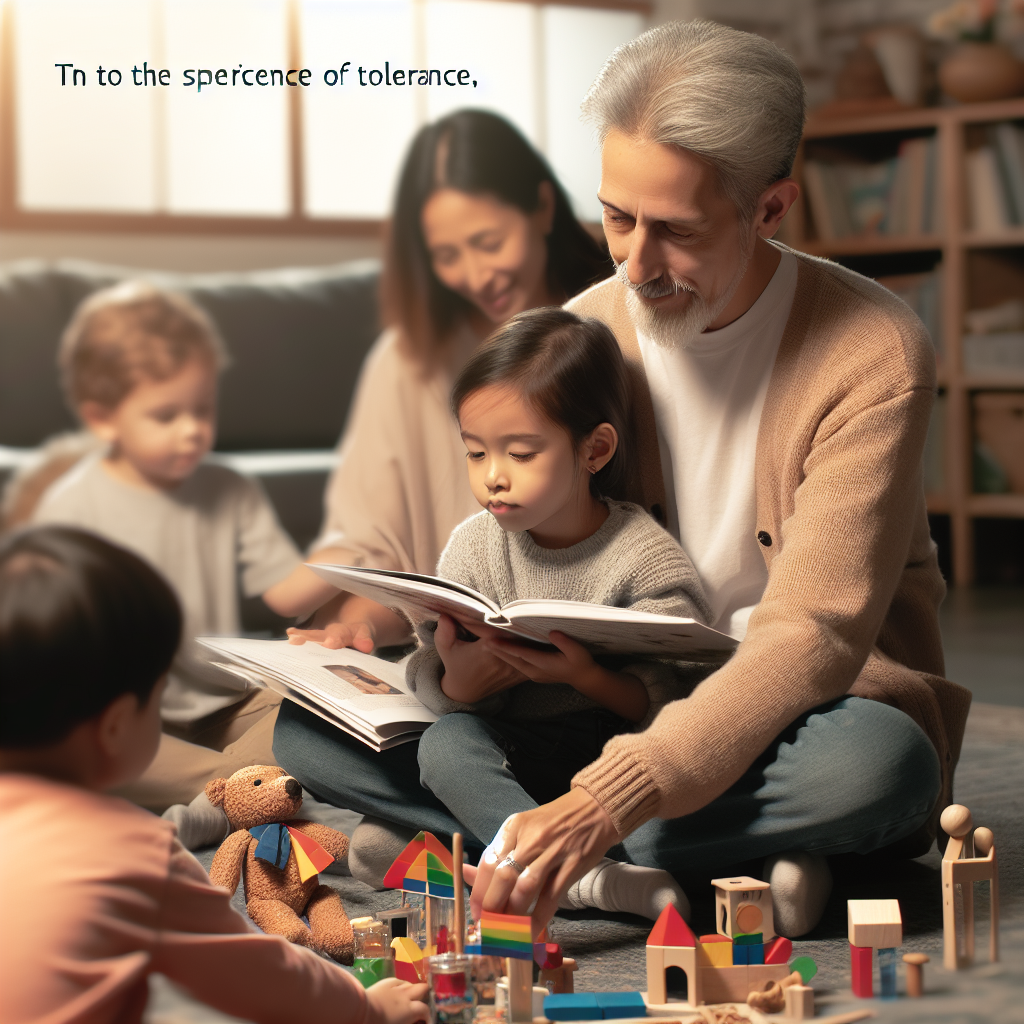How to Teach Your Little One Tolerance: Effective Strategies
Introduction
Tolerance is not something we are born with, but one we acquire throughout life. Education for tolerance begins at home, in the bosom of the family, and continues through interaction with others. Learning to accept and respect cultural, religious, racial or sexual orientation diversity is essential to forming a balanced adult in today's society. In this article, we'll explore effective strategies for teaching your little ones the principles of tolerance.
The Importance of Tolerance in Children's Education
Education for tolerance is fundamental in a globalized world where interactions between different cultures are more and more common. Teach your child to recognize and appreciate people's differences so they can build positive relationships with those around them. Tolerance helps develop a sense of empathy and promote peace and understanding within the community.
How To Talk About Tolerance With Your Child
Dialogue is the most powerful tool in education for tolerance. Talk openly about people's differences, using language the child can understand. It is important to answer his questions patiently and encourage him to express his opinion. Cultivate a family environment where questions about diversity are welcomed and discussed honestly.
Activities and Games That Promote Tolerance
Use games and activities to introduce tolerance concepts in an interactive and fun way. There are many role plays that can help children understand how others feel when they are marginalized or discriminated against. Group activities that promote teamwork regardless of differences are also great for this.
The Role of Stories and Books in Understanding Tolerance
Books are an accessible method of introducing complex concepts to children in an easy to understand way. There are many stories and picture books that address themes of tolerance and diversity, with the ability to cultivate empathy and acceptance among children. Choose diverse books together and discuss the stories you read.
Personal Example in Education for Tolerance
Children are great imitators of adult behavior, so personal example is crucial. Show your child how to behave in situations where diversity is evident, such as when meeting a person with a different accent or seeing people with disabilities. Your behavior in these situations will serve as a model for your child.
Learning through Volunteering and Direct Interaction
Volunteering provides an excellent opportunity for older children to learn about different cultures and social backgrounds. Through direct interaction with people from diverse social backgrounds, children can learn the value of equality and collaboration. Encourage your child to get involved in local volunteer projects.
Education for Tolerance in the School Context
School is a social environment where your child will meet a variety of peers and teachers. Talk to teachers about how tolerance is addressed in the school curriculum and how situations of discrimination or bullying are handled. Make sure the school supports and promotes the values of tolerance.
Strategies for Managing Intolerance and Bullying
Although we would like children to never encounter intolerance situations, the reality is that they can happen. Teach your child nonviolent coping and defense strategies, such as open dialogue and seeking support from trusted adults. It is essential to teach your child to speak up when he encounters situations of intolerance, whether he is a victim or a witness.
Celebrate Diversity
Celebrate international days celebrating diversity together and learn about different cultures around the world. Participate in cultural festivals or cook traditional dishes. These activities are not only fun, but also help little ones understand that diversity is something to be celebrated, not feared.
Conclusion
Tolerance is an important pillar in building a society that respects differences and promotes mutual understanding. By implementing the strategies discussed, such as open discussions, educational activities, and personal example, you can teach your little one to be an aware and accepting global citizen. Encourage him to celebrate diversity every day and build a future where tolerance becomes the norm, not the exception. If this topic has interested you, don't hesitate to visit our education section for more resources and practical advice, or subscribe to our newsletter to keep up to date with the latest news in the field.














































































































































